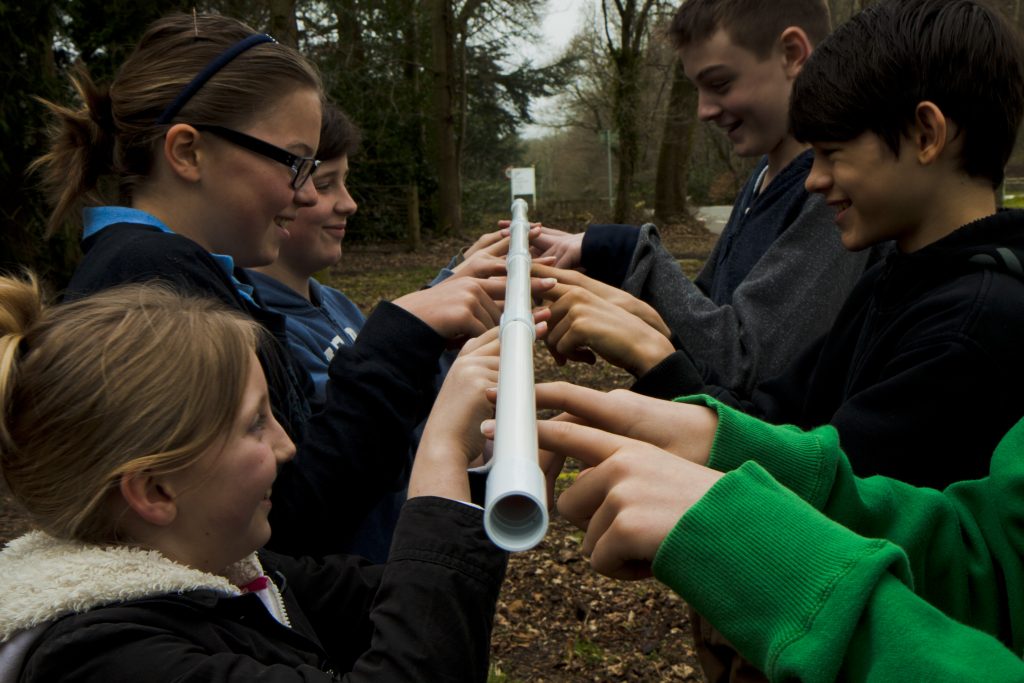Playtime is a priority
Playtime should be just that, play time. In many school systems around the world, play time (or break time, recess etc.) has been cut time and time again in favour of more structured classroom time. There are countless pressures on school leadership and teachers to meet targets and prioritise the results of standardised tests for pupils. It’s hard to fit it all in and playtime is often easiest to cut. Plus, people in general are less comfortable with unstructured time than they used to be, we are all over stimulated and find screen-free, down time tough to manage. Overall, playtime at school has taken a big hit and it is detrimental to children’s development and well being.
Why is playtime important?
Playtime is when children use their imagination and have true freedom to be creative without many parameters. They learn valuable social skills to help them form healthy relationships in the present and the future. They are able to test out ideas, to feel success and failure, and learn to bounce back and try again. One day, their team wins the football game and the next they lose, these are both good lessons in fair play and teamwork. In addition, while every child plays differently, they can all play, and there is no test for that! Playtime is a space with less pressure than the traditional classroom. Yes, it can be socially challenging, but there is no better space than to cultivate social skills than playtime with its familiar faces and supervising adults nearby.
Playtime gives children the opportunity to run, jump and move their bodies, or to sit and talk with friends or engage in a quiet game. They have a degree of choice over their time and this is empowering for children who so often are told what to do and where to go by adults. It’s a space where children become independent thinkers and decision makers.

Plus, physical play is good for children to get exercise and practice health risk taking. When we can get outside, and ideally see some greenery, it is calming and supports their overall mental health. Outdoor, physical play is a necessary outlet for many of us. Playtime is fundamentally a good thing and much needed in a busy school day, with support and supervision as needed to support all pupils. Yet, it has often been pushed down the list of priorities, when it should be up near the top.
The tide is starting to turn, however, as many schools start to look at their grounds and approach to play differently. Let’s look at some practical things you can do, at little or no cost, to improve the quality of play time for your pupils.
Introduce loose parts to Playtime
Loose parts are items that can be used in different ways for character education and play. There’s a wide range of things here that your school could collect or purchase to use at playtime. Think pallets, gutters, tyres, rope and second hand household items for starters. You’ll be amazed at how pupils play and interact with these materials. There’ll be inventions, chain reactions and so much more when they have the room to experiment with ideas and collaborate with each other.
We have a Loose Parts PAC that’s perfect for play and more, check it out here.

Start a wet weather store
Collect wellies, jackets and warm layers for pupils to borrow as needed for cold or wet weather playtimes. If your school population is able and willing to provide a pair of wellies to store school for each pupil, even better. That way, children can get outside in the elements with greater ease. Do the same for your staff who supervise and guide playtimes. This will double up as a great resource for any outdoor learning at school, you can read more about that here.

Use your grounds
Do you have a field? Or play equipment? Or another interesting area that’s on your site? Well, then use it! Many schools we see limit playtime to the asphalt playground area right by the school doors when there’s a plethora of other space available. If you can, get further afield and let the children play in varied spaces. This may require a rethink of your supervision plans, but the benefits for children, and their overall learning, make it absolutely worth it!

Ask for advice
Connect with us or another outdoor play specialist and ask for ideas and support. There are some fantastic, simple adjustments you can make to make a big difference to playtimes. Children deserve to learn and grow in ways that are best for them, and very often, that is through play.
Reach out with your questions or training needs, we might just be able to help!

Let’s make playtime a priority on the timetable at school. The children will thank you. Playtime should not an afterthought, but instead, an opportunity!
